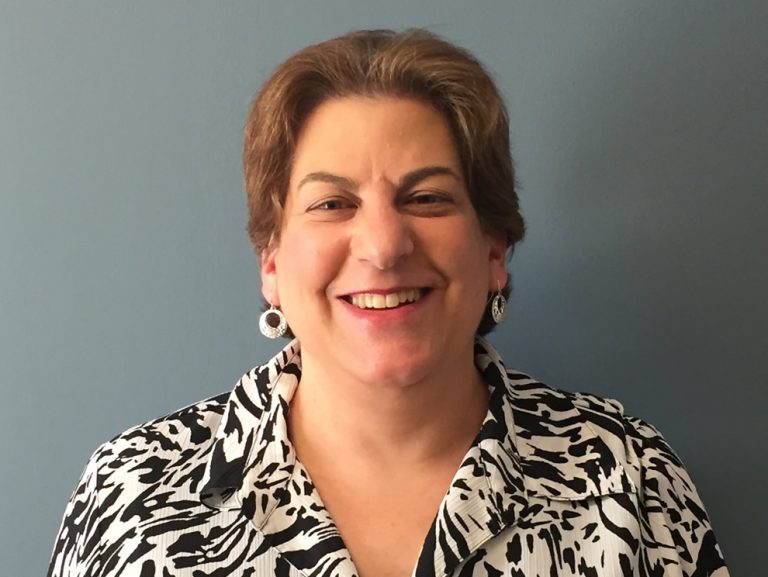
Experienced project management professional is first full-time staff hire for new initiative
The Casualty Actuarial Society (CAS) has named Amy Brener, PMP, director of The CAS Institute (iCAS), a subsidiary of the Casualty Actuarial Society that will offer new credentials and specialized professional education for quantitative professionals. Brener joined The CAS Institute as a project manager on a short-term contract last year, and she was recently hired full-time to run the program.
Brener has a management background in both the corporate world and academia. She most recently spent over a decade at George Mason University in Fairfax, Virginia, serving as communications director for the university’s vice president of information technology/CIO and eventually as the director of global IT projects. She also served as deputy director of 4-VA, a statewide initiative dedicated to fostering collaboration among Virginia universities with the goal of improving all Virginians’ access to higher education.
“We couldn’t be more pleased to have Amy officially leading this new and exciting venture for the CAS,” said CAS Board Chair Bob Miccolis, who chairs The CAS Institute Leadership Advisory Council. “With the positive response to our launch of The CAS Institute last fall, having Amy’s skill set and thorough understanding of the iCAS mission has been critical to the launch and growth of the program.”
“Amy brings an immense number of project management skills to this initiative and has been a critical member of the CAS team for several months,” said CAS Executive Director Cynthia Ziegler. “We are happy to officially welcome her to the staff.”
Actuarial Review recently sat down with Brener to discuss her new role.
As director of The CAS Institute, what does your day-to-day work involve?
Since iCAS is a subsidiary of the CAS, much of the work that is currently being done is by CAS members and others whom they have brought into the project. I coordinate several different volunteer groups, including the Leadership Advisory Council, which serves as the oversight board of iCAS, and the Subject Matter Expert Panel, which is designing the curriculum as well as the Experienced Practitioner Pathway for our first credential. Each of these groups has smaller subgroups that are charged with looking at specific areas of the program, including membership, communications, risk and finance. I am also involved in setting up and maintaining strategic partnerships, including the one we announced last fall with The Institutes and several others that are currently in the works. Finally, I participate on half a dozen CAS staff teams that are working on aspects of iCAS development.
“Having Amy’s skill set and thorough understanding of the iCAS mission has been critical to the launch and growth of the program.”
— Bob Miccolis, CAS Board Chair
How does your past experience apply to this new director position?
I can think of two specific experiences that have informed my work with iCAS. When I became deputy director of 4-VA, it was just being established. That means I was involved in its organization, defining its mission, and developing its strategic and operational plans. So iCAS is technically the second “startup” I have been involved with in the past five years. In my personal time, I serve in a leadership role with Toastmasters International. As the person in the “Number 2” position of the local Toastmasters district, I am responsible for the success of our 3,000 members and 149 clubs. I have a lot of experience working with volunteers to get our goals accomplished. I use the same skill sets to collaborate with the CAS members and other volunteers who serve on the iCAS Leadership Advisory Council and the Subject Matter Experts’ Panel.
What makes the iCAS inaugural credential in data science and predictive analytics so unique?
Two characteristics make our credential unique. The first is the emphasis on P&C insurance understanding and training. The second, and something I’m particularly excited about, is the fact that our certification will involve more than just a multiple-choice test format. I have taken several certification exams myself — in fact, I have taught GRE and GMAT test prep courses at local universities for 15 years — so I know firsthand that it is possible to “study for” and “teach to” a specific test. Our certification in predictive analytics will require candidates to actually demonstrate their ability to perform actual work in this area.
 Tell us more about the process for attaining the credential.
Tell us more about the process for attaining the credential.
The predictive analytics credential will be awarded after a candidate has passed four different assessments. While the formats of the latter two assessments are still under development, the basic outline is already in place. The first three can be defined by their “subject matter”: (1) general (P&C) insurance; (2) data management, data exploration, and visualization; and (3) modeling and methodologies. I’m especially excited about this third area because, under the current plan, the exam will require the test takers to run an open-source version of software such as R, SQL or Python against data sets to solve problems and generate graphical output. We anticipate that the fourth assessment will consist of a project; applicants will complete a project designed to highlight the application of the topics tested in the three exams.
What key things should CAS members know about iCAS?
The first assessment for the data science/predictive analytics credential will require completion of an online course being designed with The Institutes; this course will be followed by a multiple-choice/short-answer examination. Waivers will be given to CAS Fellows and Associates, as well as nonmembers who have taken and passed CAS Online Courses 1 and 2 and Exam 5, since the material it covers is being taken primarily from the syllabi and study materials for these three CAS admissions requirements. A similar exemption will be given to actuaries from Mutual Recognition partners who can demonstrate they have taken the relevant P&C track.
We are also working on an Experienced Practitioner Pathway (EPP) for those who are already experts in predictive analytics for P&C; these experts can receive our credential without needing to complete the assessments. We plan to release the guidelines and process for applying through EPP in October when we announce the release of the first of the four assessments as well as other details about the first credential.











